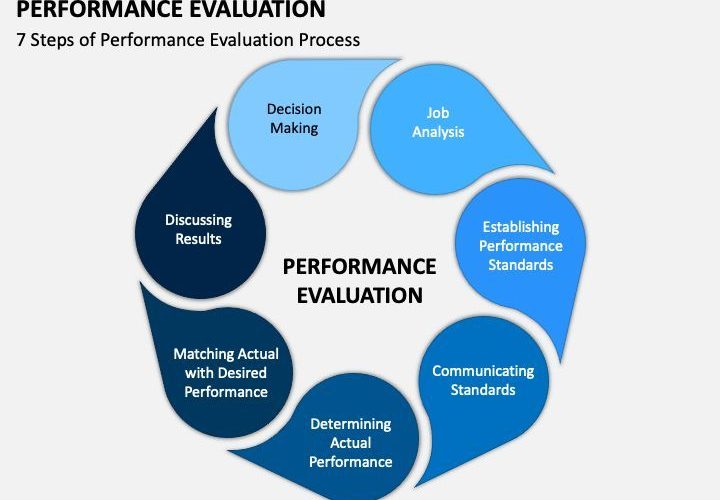The rapid rise of AI promises remarkable benefits for businesses, from automating routine tasks to driving data-driven decision-making. However, not every company is reaping the full rewards of their AI investments. Many businesses find their AI strategies falling short of expectations, leaving them with underperforming models and unmet goals.
One of the primary reasons AI strategies fail is the lack of proper performance evaluations. Companies risk misalignment between AI solutions and business objectives without regularly assessing how well AI models are functioning. AI models may be running efficiently, but if they are not optimised for the business’s specific needs, they won’t deliver the desired results.
AI performance evaluation is the key to bridging this gap. Businesses can ensure that their AI strategies align with their broader goals and generate measurable success by systematically monitoring, assessing, and fine-tuning AI systems. In this post, we’ll explore how AI performance evaluation is essential to unlocking the full potential of your AI strategy.
Learn how AI performance evaluation can transform your AI strategy into a powerful, results-driven solution.
Why AI Strategies Fail
Lack of Clear Metrics
Many businesses launch AI initiatives without setting specific, measurable objectives. Without defining what success looks like, it becomes challenging to gauge AI’s performance. For example, companies may invest in AI technologies with vague goals like “increasing efficiency” or “enhancing customer experience,” but fail to set concrete Key Performance Indicators (KPIs) to track these goals. This lack of clear metrics makes it impossible to assess if AI is achieving its intended outcomes or if adjustments are needed, leading to underperforming projects and wasted resources.
Misalignment with Business Goals
AI is often deployed without ensuring it aligns with the company’s core objectives. For instance, businesses may adopt AI tools to keep up with trends or to “automate everything.” Still, if those tools don’t fit well within the business’s overall strategy, they can become ineffective. An AI system that automates processes without understanding the business context or the customer’s needs will likely deliver poor results. This misalignment leads to wasted investments as the AI may not be solving the right problems, or worse, creating new challenges for teams to manage.
Integration Issues
Integrating AI into existing systems and workflows is a common struggle. Many businesses rely on legacy technologies not built to accommodate new AI tools. As a result, AI models fail to integrate smoothly into existing processes, causing disruptions and inefficiencies. This lack of seamless integration can lead to slow adoption, increased costs, and decreased operational efficiency, which undermines the potential value AI can bring.
Unrealistic Expectations
Over-promising the capabilities of AI can set companies up for disappointment. Many businesses expect AI to deliver flawless results immediately, whether fully automating tasks or making perfect decisions. However, AI technologies require time to train, adapt, and optimise. When companies expect immediate results without giving their AI systems the proper time and resources to mature, it leads to frustration and ultimately to the abandonment or underuse of the technology.
The Importance of AI Performance Evaluation (250-300 words)
AI performance evaluation refers to assessing how well an AI system performs in real-world applications. It involves tracking key metrics, analysing outcomes, and identifying areas for improvement to ensure the AI system aligns with business goals and delivers value.
Components:
Key elements of AI performance evaluation include:
- Data Quality: Ensuring the data fed into AI models is accurate, relevant, and up-to-date.
- Model Accuracy: Measuring how well the AI makes predictions or decisions compared to the correct outcomes.
- Response Time: Evaluating the speed at which the AI delivers results.
- Reliability: Ensuring the AI system functions consistently without failures or errors.
- Scalability: Assessing whether the AI can handle increased workload or larger datasets as the business grows.
Regular AI performance evaluations are essential to ensure that AI models are working as intended. This process helps identify potential flaws or inefficiencies, allowing businesses to fine-tune their AI systems for better results. Companies risk relying on underperforming AI without proper evaluation, which could lead to missed opportunities, lost resources, or diminished customer trust.
Many businesses have successfully turned their AI strategies around by implementing performance evaluation. For example, Synoptix AI provides an evaluation framework allowing enterprises to monitor, assess, and optimise their AI agents continuously. By leveraging Synoptix AI’s performance evaluation features, companies can ensure that their AI models evolve with changing business needs, delivering better accuracy, efficiency, and alignment with strategic goals.
How AI Performance Evaluation Works (100-150 words)
AI performance evaluation begins with data monitoring, which involves continuous tracking of data inputs to ensure they are accurate, relevant, and up-to-date. Model performance metrics such as accuracy, precision, recall, and the F1 score are then used to assess how well the AI model performs in its tasks. These metrics help identify discrepancies between the AI’s predictions and actual outcomes.
Real-time analytics is also crucial, as AI evaluations should be performed regularly to adapt to the dynamic business environment and evolving needs. AI systems must be evaluated frequently to ensure they remain effective and efficient.
Tools like Synoptix AI’s evaluation framework allow businesses to continuously monitor, assess, and optimise AI models, ensuring peak performance. Visit our platform page to learn more about how Synoptix AI supports AI evaluations.
The Role of AI Performance Evaluation in Enhancing Enterprise AI (150 words)
- Optimising AI Models: AI performance evaluation helps optimise models for specific business use cases like automation and decision-making, ensuring they meet targeted goals.
- Increasing ROI: Regular performance evaluations allow companies to track their AI’s effectiveness, ensuring maximum return on investment by improving operational efficiency and reducing errors.
- Customisation and Fine-Tuning: Evaluating AI performance enables businesses to fine-tune models based on specific business contexts, ensuring AI tools perfectly align with business needs.
- Security and Compliance: AI evaluations help maintain security standards and ensure regulatory compliance. Synoptix AI’s SynoGuard feature provides a robust framework for ensuring AI solutions are secure and compliant.
How Synoptix AI Can Help (100-120 words)
AI Performance Evaluation with Synoptix: Synoptix AI offers robust tools for monitoring, evaluating, and optimising AI agents and models, ensuring they deliver peak performance.
Key Features:
- Seamless integration with existing workflows
- Customisable evaluation frameworks
- AI consulting support
- Comprehensive governance tools
Synoptix AI helps businesses improve AI performance by continuously fine-tuning models, ensuring compliance with industry regulations, and maximising ROI through efficient, data-driven decision-making.
Experience Synoptix AI’s evaluation tools in action—start a free demo or book a trial today.
Conclusion
AI performance evaluation is critical to the success of any AI strategy. By continuously monitoring and optimising AI models, businesses can ensure their AI systems work as intended, align with business goals, and deliver measurable results. AI strategies risk underperforming and failing to meet expectations without proper evaluation, wasting time and resources.
The first step toward improving your AI performance is exploring Synoptix AI powerful evaluation tools. Synoptix AI offers comprehensive solutions to optimise models, ensure compliance, and drive ROI.
Start by booking a demo or starting your free trial to see how Synoptix AI can transform your AI strategy.












